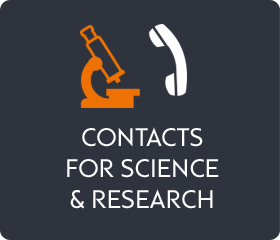Research at the Faculty
Science, Research and Development
Research activities are carried out at individual departments and four research centres: Centre for Educational Research, Human Motion Diagnostic Centre, Centre for Studies of European Identity, Centre for Studies of Regional Musical Culture. The Faculty runs the Eye-Tracking Laboratory which utilizes the technology in educational/didactic research. There is a long tradition of regularly organized conferences at the Faculty of Education, both national and international, e.g. the Educational Diagnostics and Evaluation (held since 1993), the ICTE focusing on information and communication technologies in education (since 2000), the International Seminar on Pedagogical Kinanthropology. The departments publish a number of scientific journals: the New Educational Review which represents the outcome of the collaboration of universities from three countries, the ICTE Journal and Word and Image in Communication with Children. The Faculty also concentrates on development projects financed by various grants which ‒ apart from supporting the development of educational and research activities ‒ significantly contribute to the collaboration with “practice” and help fulfill the so-called third role of universities.
Science and Research Orientation
The Faculty of Education has emphasized the quality of educational activities, mainly teaching, i.e. direct, personal work with students. On the other hand, the Faculty of Education aims at becoming a research faculty, especially in the area of educational/didactic research. The Faculty also deals with research in areas connected with the teachers’ approbation. Generally, the development of science and research is instrumental in the Faculty’s prestige and competitiveness.
- The Faculty carries out fundamental and applied research at the national level and aims at being more active internationally. At the same time, based on its nature the Faculty of Education has to stay closely connected with the region, mainly with primary and secondary schools, and contribute via research to solving the current problems of the regional educational practice.
- The Faculty is successful in cultivating research in various fields of science, e.g. health sciences, linguistics, literary theory and criticism, art history and theory, which is crucial for the development of a wide range of study programs at the Faculty. Educational research, however, is the focus of the Faculty’s scientific activities as its outcomes present a necessary precondition for the accreditation of educational study programs at the University of Ostrava. This wide research area includes mainly educational research in general didactics, subject specific didactics, general education, educational psychology, special or social education.
- The Faculty supports the establishment and development of research teams concentrating on wider, frame joint topics. Among other things, this results in focusing research projects on a set of frame topics, especially the ones recognized as the Faculty’s priority research initiatives, and in connecting the orientation of diploma and doctoral theses with these topics.
Updated: 30. 05. 2018






















